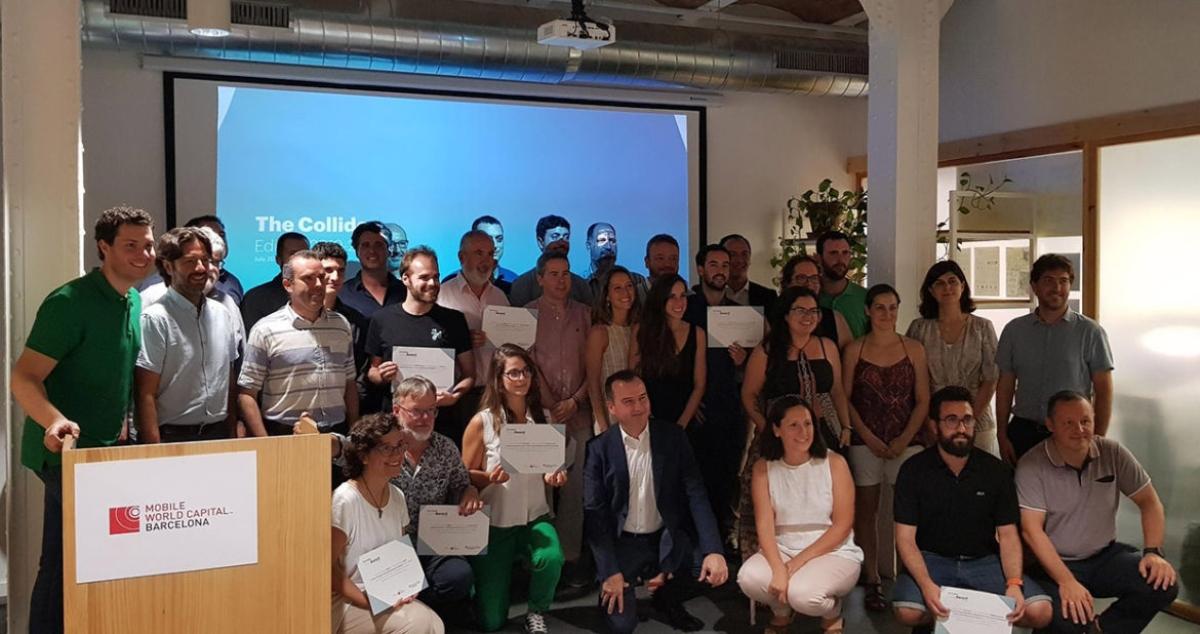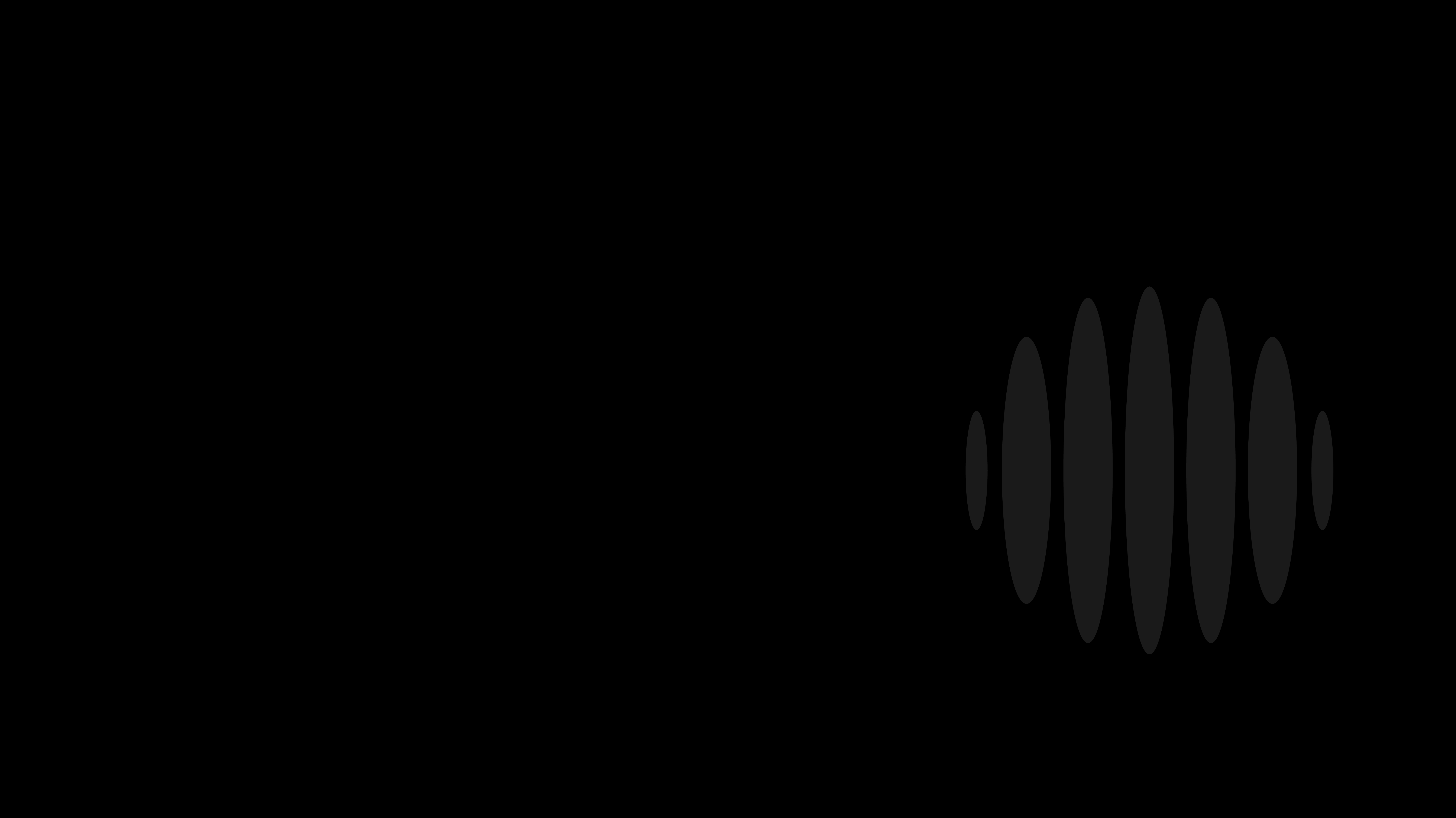- The Collider, MWCapital’s tech transfer programme, closes the 2019-2020 edition with 33% of the projects that started converted into companies
- Two of the incorporated companies are in the health sector and three in Industry 4.0

26 June, 2020
Barcelona, 26 June 2020.- Mobile World Capital Barcelona has closed the most successful edition so far of The Collider, its tech transfer programme, with the creation of 5 highly innovative startups with a great growth capacity. The five companies (Cooling, Deep Detection, Exheus, Geokinesa and GoFasd) have technologies developed in research groups at the Sant Pau Institute for Biomedical Research (IR-HSCSP), the High Energy Physics Institute (UAB), the Catalan Institute of Nanoscience and Nanotechnology, Hospital Clínic – IDIBAPS and the University of Barcelona.
The Collider brings scientific knowledge together with entrepreneurial talent to create highly innovative technological startups in sectors such as digital health, Industry 4.0 and mobility. In the last edition, 163 projects by 27 research centres and research teams and over 1,000 entrepreneurs from all over the world applied to take part in the programme. Of these, only 15 research groups with highly developed technologies and 28 entrepreneurs with long track records were selected. The Collider created different teams from among them and after only six months of work, 5 have now been incorporated as companies. Over its three editions, the programme has helped in the formation of 14 startups, thus generating 63 jobs and providing training to 157 scientists, one of its objectives for creating wealth and helping to ensure the research centres’ sustainability.
The presentation of this edition’s results was also attended by investor Isaac de la Peña, who explained what investment in Deep Tech involves. This was followed by the Investors’ Day, at which all the startups created on the The Collider programme had the chance to contact investors, both in the pre-seed/early stages and during the growth and VC phases, as well as corporate partners and advisors to the programme.
Companies created on The Collider 2019-2020
Cooling:
The company has developed a technology for cooling without consuming energy and with zero emissions. The technology is patented and is based on the natural radiative cooling process by which all bodies regulate their temperature. Its main applications are thermal regulation and efficiency. It is a sustainable technology aligned with the UN’s Sustainable Development Goals and has a positive impact on global warming.
For example, Cooling’s patented technology makes it possible to reduce electronic temperature to 20 ºC, which lowers the cost of components, prolongs their useful life, improves performance and saves energy.
Team: Formed by Marie Sklodowska-Curie (a researcher from the Catalan Institute of Nanoscience and Nanotechnology) and a serial entrepreneur whose last company was awarded over 2 million euros in public funds.
Applications: Thermal regulation of machines and buildings. Efficiency in electronics, machinery and energy production (photovoltaic and thermoelectric).
Deep Detection:
They have designed a spectral x-ray camera for online scanning. It improves on hitherto available detection technologies through the use of deep-tech photonics, micro-electronics and algorithms. Its spectral x-ray camera is an improvement on current detectors as it provides a sharper image at high speeds and achieves what is referred to as “spectral definition”. It may be used to detect anything within the production process.
Team: The project emerged from the High Energy Physics Institute (UAB) while its business aspects are managed by an entrepreneur with experience in creating different startups.
Applications: Industry 4.0 (manufacturing and inspection lines); foodstuff, beverages and consumer goods (such as packaging and raw materials); pharmaceuticals; manufacture of modern materials (compounds, foundry, electronics, etc.) for the automotive industry and aviation; and security. In the food and agriculture sector, for example, it can detect meat composition, the ripeness of fruit, seed quality, etc.
Exheus:
Applied artificial Intelligence technology is used to compile all the information about the 22,000 genes in the human body to analyse gene expression at the time the test is done. The information therefore varies according to the moment in which the sample is analysed. This is where the difference with other types of DNA studies lies. All these data can be analysed and actions can be taken to correct any deviations affecting the body.
Team: The technology has been developed by a researcher from the Sant Pau Institute for Biomedical Research (IR-HSCSP). The Collider placed them in contact with a CEO with experience in the development of pharmaceutical and biotechnology projects.
Applications: Analysis of body pathologies, lesions and/or discomfort, control and monitoring of training, improvement in sporting performance and analysis of diets and nutritional guidelines.
Geokinesia:
They have developed spatial remote sensing technology that detects ground deformation with pinpoint precision. Electromagnetic fields can make it hard for engineers in construction and civil engineering to determine site coordinates when they are close to tall buildings or inside. This technology, the IPOLE system, solves these problems and does so, moreover, at a low cost.
Team: The technology has emerged from the University of Barcelona. The project’s CEO has experience in different telecommunications and technology companies, in venture capital and startups.
Applications: Mining, oil, gas and civil engineering (Industry 4.0).
GoFasd:
In the area of health, GoFasd has created innovative software solutions for diagnosing and treating neurocognitive diseases in children with FASD (foetal alcohol spectrum disorder), which causes severe neurocognitive problems both in babies and in all stages of growth. The company has not only developed a diagnostic tool, but has also created a suite for treatment using virtual reality and for neurocognitive stimulation. These solutions are aimed at health professionals (paediatricians, psychologies, psychiatrists, etc.), families and education professionals.
Team: Hospital Clínic and IDIBAPS provide the medical expertise while two engineers complete the team with their knowledge in telecommunications and industrial computing.
Applications: Health, for the diagnosis and treatment of diseases.
Stay up to date about everything
Subscribe to stay up to date with the latest content from Mobile World Capital Barcelona.
